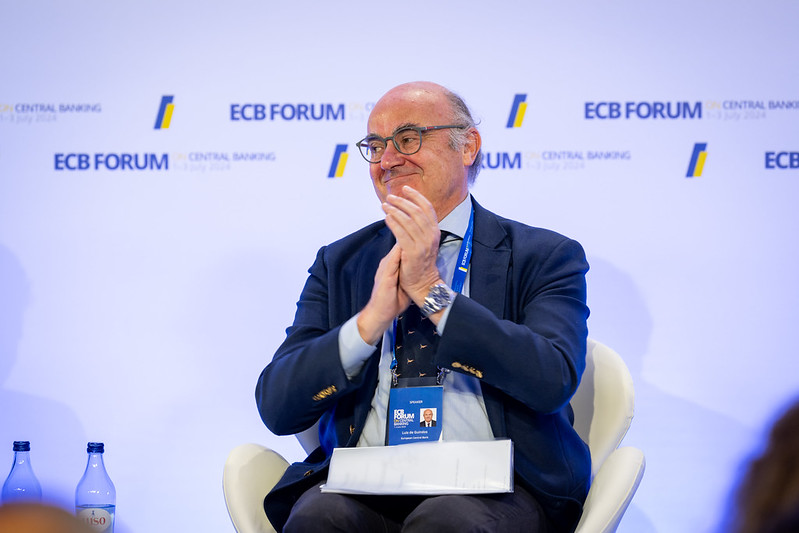ECB’s de Guindos: Rates Appropriate for Now but Uncertainty Demands Caution
17 September 2025

By David Barwick – FRANKFURT (Econostream) – European Central Bank Vice President Luis de Guindos on Wednesday said that the ECB’s current interest rates remain “appropriate” but stressed that policymakers were keeping all options open amid heightened geopolitical and economic uncertainty.
In an interview with German news daily Die Welt, de Guindos underscored the Governing Council’s unanimous decision last week to leave rates unchanged. One of “two key takeaways from the meeting” was that rates are “appropriate under the circumstances – based on inflation developments, our projections and the transmission of our monetary policy,” he said.
The other takeaway was the fact that “we are living in a very complex and uncertain world with numerous risks – from geopolitical tensions to trade issues, like those between China and the United States,” one consequence of which could be an increase in Chinese exports to Europe, he said.
De Guindos noted in this context that higher real incomes had not led to a corresponding increase in household consumption, which he attributed to “a certain lack of confidence in the future” and in particular fears of higher taxes.
He declined to endorse market views that the ECB was done easing. “Markets are not always wrong – but they’re not always right either,” he said. Monetary authorities had to “act with caution. And that’s exactly what we're doing.”
Everyone on the Governing Council agreed on the importance of keeping “all options open,” he said. “If the situation changes, we will adjust our stance accordingly.”
In other comments, de Guindos defended central bank independence as “the best protection against high inflation” while declining to speculate about the outcome of US President Donald Trump’s attacks on the Federal Reserve.
In Europe, he indicated, the situation was different despite fiscal concerns including those related to France, as the ECB was not under political attack.
Asked whether the ECB would be forced to act if spreads widened too much, he replied that “we will do what we have to do to reach our goal of price stability.”
“With defence spending rising and other fiscal challenges, it is especially important to signal to financial markets that we will continue to be reliable when it comes to monetary policy,” he said. “On yield spreads, yes, in some countries they have increased – but in others they have gone down again. This is often overlooked.”
The Council had not discussed a potential deployment of the transmission protection instrument (TPI) since the establishment of the tool three years ago, he said.
“Financial markets, including sovereign bond markets, are calm and orderly,” he said. “There are no signs of liquidity strains and, from our point of view, the spreads between sovereign bonds in the euro area are not a source of concern at the moment.”
